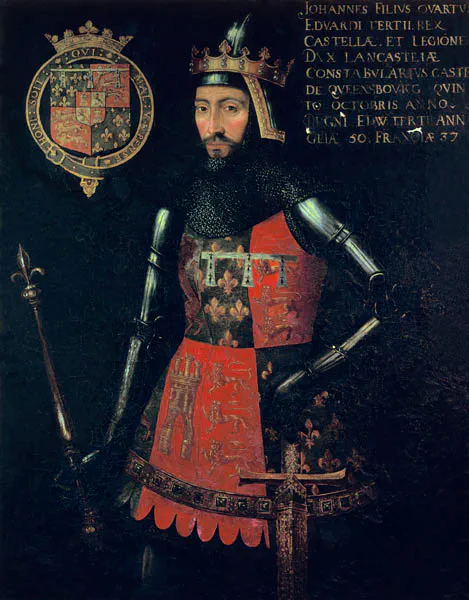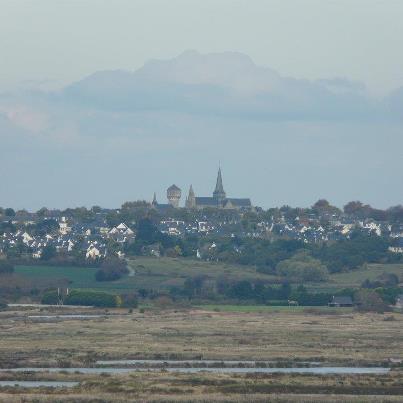- April 4, 1384
John of Gaunt, Duke of Lancaster (6 March 1340 – 3 February 1399) was an English royal prince, military leader, and statesman. He was the fourth son of King Edward III of England, and the father of King Henry IV. Because of Gaunt’s royal origin, advantageous marriages, and some generous land grants, he was one of the richest men of his era, and was an influential figure during the reigns of both his father and his nephew, Richard II.
As Duke of Lancaster, he is the founder of the royal House of Lancaster, whose members would ascend the throne after his death. His birthplace, Ghent in Flanders, then known in English as Gaunt, was the origin of his name.
John of Gaunt His involvement in military campaigns against Scotland was part of the broader Anglo-Scottish Wars, which were intertwined with the dynastic and territorial disputes of the era.
One of John of Gaunt’s notable military campaigns in Scotland occurred in 1388. Amidst the backdrop of the Hundred Years’ War between England and France, Scotland took advantage of the English preoccupation with the continental conflict to launch raids into Northern England. In response, John of Gaunt led a retaliatory expedition into Scotland. This campaign was part of a larger strategy to counter Scottish incursions and assert English dominance in the region.
However, John of Gaunt’s campaign in 1388 did not achieve significant military success. The expedition is noted more for its strategic intent than for decisive victories or territorial gains. The Scottish forces employed a scorched-earth strategy, withdrawing before the advancing English army and leaving behind little of value to be captured or used. This approach, combined with the rugged terrain and the logistical challenges faced by the English forces, limited the effectiveness of John of Gaunt’s campaign.
The Anglo-Scottish conflicts during this period were characterized by such raids and counter-raids, with both sides engaging in a series of maneuvers that often resulted in limited territorial changes but caused significant disruption and hardship for the populations of the border regions.
John of Gaunt’s actions against Scotland were part of his broader role as a military leader and statesman. Despite the lack of major victories in this particular campaign, his involvement in the politics and military affairs of England, as well as his contributions to the dynastic and territorial strategies of the English monarchy, underscore his importance as a figure in the late 14th century. His legacy, particularly through his descendants in the House of Lancaster, would continue to shape English and British history in the subsequent centuries.

 ← Second treaty of Guerande between Yann IV of Brittany & Charles VI of France recognizes Breton Independence
← Second treaty of Guerande between Yann IV of Brittany & Charles VI of France recognizes Breton Independence
 Thomas Mortimer is appointed justiciar, Ireland →
Thomas Mortimer is appointed justiciar, Ireland →